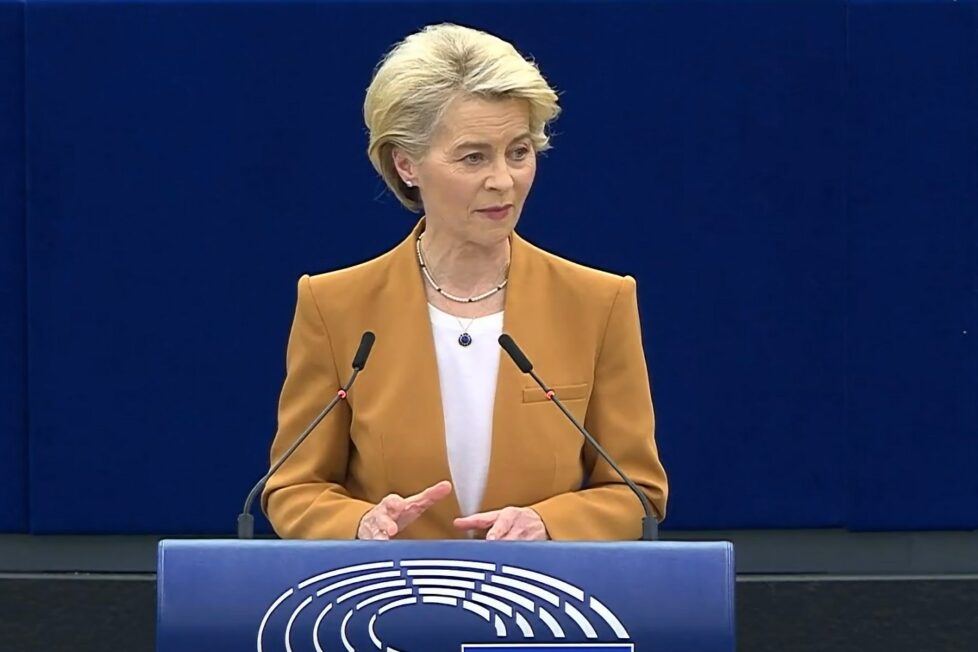EU Commission Unveils Plans to Scale Clean Tech Manufacturing: “The Race is On”

The European Commission announced today a series of proposals aimed at ensuring its place in the race to scale up clean tech industrial capacity for the net zero energy transition, including the launch of the Net-Zero Industry Act (NZIA), focused on the facilitation of clean technology industrial capabilities and capacity in Europe, and the European Critical Raw Materials Act, aimed at ensuring access to the raw materials necessary for the net zero, digital, aerospace and defense sectors.
The proposals make up critical elements of the EU’s recently launched Green Deal Industrial Plan, a series of strategies and initiatives aimed at enhancing the competitiveness of the Europe’s net zero industries, and supporting the EU’s transition to climate neutrality. The plan comes as major government initiatives globally heat up to grab a stake in the rapidly emerging market to facilitate the net zero transition.
The race kicked into high gear last year with the passage of the U.S.’ Inflation Reduction Act, which allocated nearly $270 billion through a series of tax credits, loans, grants and subsidies to areas including renewable energy and industrial decarbonization solutions.
In a speech at the European Parliament Plenary on Wednesday leading up to the release of the NZIA, European Commission President Ursula von der Leyen said:
“The race is on. The race on who is going to be dominant in this market in the future. We must get our act together if we want to stay front-runners. We must nurture our own clean-tech industrial base, both to create good jobs, well-paying jobs here in Europe and, of course, to ensure access to the clean solutions we so urgently need. And that is what the European Green Deal Industrial Plan is all about.”
The Net-Zero Industry Act proposes a series of measures aimed at scaling up the manufacturing of technologies key to achieving climate neutrality, and establishes a goal for at least 40% of the annual deployment needs for strategic net zero technologies to be manufactured in the EU by 2030.
The act supports 8 specific technologies, including solar photovoltaic and solar thermal technologies, onshore wind and offshore renewable energy, batteries and storage, heat pumps and geothermal energy, electrolysers and fuel cells, biogas/biomethane, carbon capture and storage (CCS), and grid technologies.
Targeted actions to help scale the key technologies include streamlining permitting processes, setting an objective to reach 50 million tonnes of annual CO2 storage by 2030 – with requirements for oil & gas producers to contribute to the goal, introducing sustainability and resilience criteria in public procurement and auctions along with actions to support private demand, setting up “Net-Zero Industry Academies” to support the development of a net zero skilled workforce, enabling “regulatory sandboxes” to allow member states to set up temporary regulatory regimes for the development, testing and validation of potential new net-zero technologies, and establishing a Net-Zero Europe Platform for member states and the Commission to coordinate action and exchange information.
The Critical Raw Materials Act identifies a list of strategic raw materials for the EU’s green and digital ambitions, as well as for defence and space applications, and sets goals for domestic capacities along the strategic raw material supply chain, including 2030 benchmarks for extraction, processing and recycling, along with other measures to simplify permitting procedures, monitor supply among member states, invest in research, innovation and skills, and increase sustainability.
Frans Timmermans, Executive Vice-President for the European Green Deal, said:
“Net zero technologies and renewable energy are crucial to reaching climate neutrality. Clean tech is a booming market, and the more we enhance our competitive advantage, the more quality jobs can be created in Europe.”
The post EU Commission Unveils Plans to Scale Clean Tech Manufacturing: “The Race is On” appeared first on ESG Today.